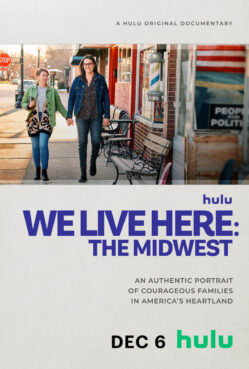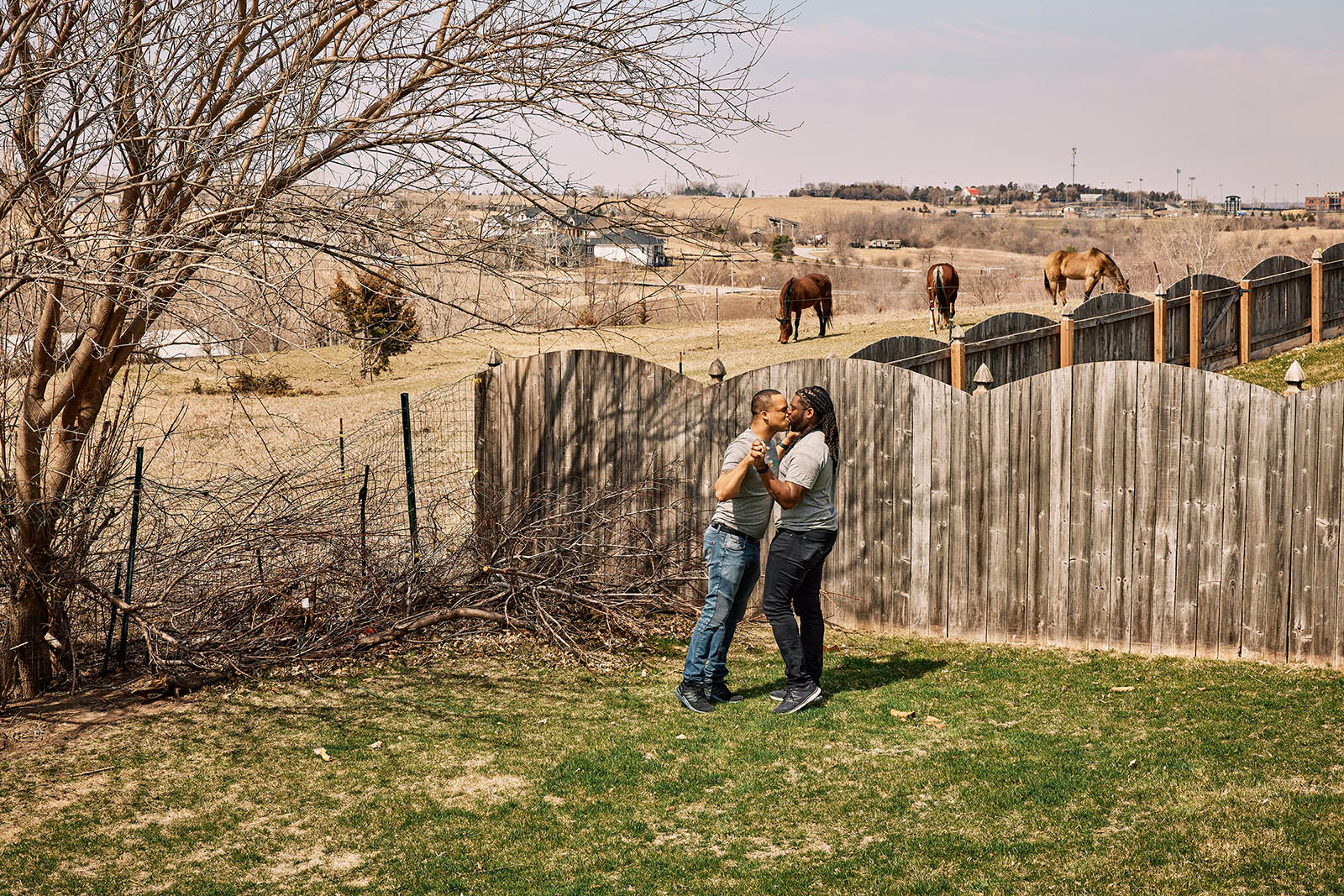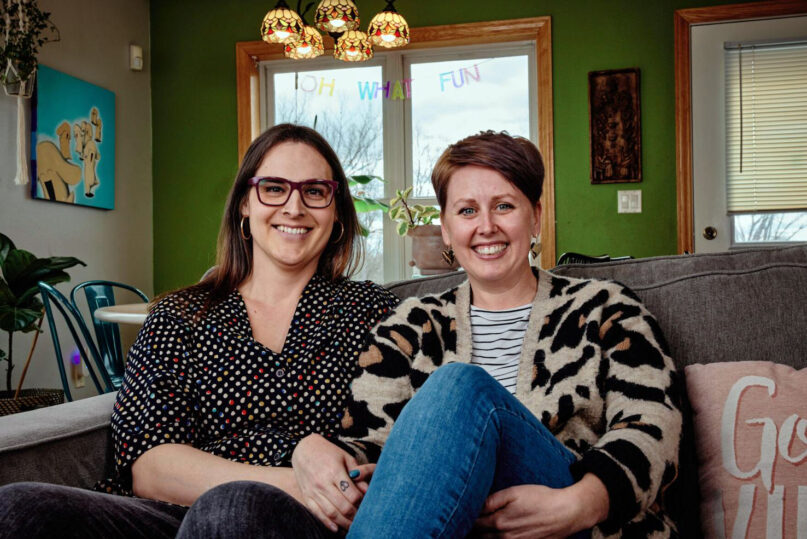(RNS) — Nia and Katie Chiaramonte’s romance started in eighth grade at a private Christian school in their hometown of Des Moines, Iowa. At 17, they officially started dating and rapidly tied the knot. After their marriage, the couple had four biological kids and adopted one.
Until recently, the family lived in their house in Des Moines, close to their friends and family, and served actively in their local church.
Then in 2018, Nia came out as a transgender woman.
Nia’s identity first sparked tensions with her parents, with whom she has no contact today. Then, it became a problem in the nondenominational evangelical church the family attended for years.
Their love for each other has only grown more profound in the years since, they told RNS in an interview, and their kids accepted Nia’s transition, coming up with a new title for her: Momo.
Ultimately, the couple chose to leave Iowa and relocate to the East Coast.

Katie and Nia Chiaramonte are highlighted in a poster for “We Live Here: The Midwest.” (Courtesy Hulu)
The Chiaramontes are featured in “We Live Here: The Midwest,” a documentary profiling queer families and individuals grappling with their identity in a region of the country that leans more conservative and traditional.
The documentary, which premieres Dec. 6 on Hulu, aims to capture a tense moment in the country’s acceptance of the LGBTQ+ community, as “anti-queer legislation and sentiment is rapidly multiplying across the country,” according to the film’s website. In addition to four queer couples, the film also shares the story of nonbinary students and Minnesota State Representative Heather Keeler.
For director and producer Melinda Maerker, the film needed to show the tension between queer identity and religious faith. For two of the couples featured, the documentary highlights their struggle to remain attached to their faith, given the harm the religious community caused them — intentionally or not.
The Midwest is the heart of American family values, explained Maerker.
“There is definitely an evangelical influence here. We were curious to see how queer families navigated that,” Maerker told RNS.
Growing up, Nia and Katie bonded over their shared experience as “church kids.” The Sunday services, the weekly Bible study groups and the children’s church were all important parts of their lives, they said.
Nia, whose church was more charismatic than Katie’s, said her religious upbringing made her the woman and the mother she is. Katie was an active volunteer at their church, teaching the Bible to adults and helping with different ministries as needed.
“I wanted to share that it was not just the dogma, not just miracles. It is love and interconnectedness,” Katie described to RNS.
When Nia came out, questions about Katie’s right to be in leadership arose in the church. The couple was never formally asked to leave, yet they both described a “welcoming but not affirming” environment that held homosexuality as a sin without fully closing its doors to anyone.
Ultimately, this implicit discourse harmed them more than outright transphobic and homophobic comments, the couple said. It didn’t let them fully embrace and claim their newfound identity, they explained.
“The message was unclear. It made it hard to move through that environment because it was not wholehearted,” said Nia.
The documentary wanted to show the extent of the harm caused by this “don’t ask, don’t tell policy,” explained the director, Maerker.

Monte and Mario Foreman-Powell in the documentary “We Live Here: The Midwest.” (Photo by David Clayton Miller; Courtesy of Hulu)
For Mario and Monte Foreman-Powell, a Black gay couple living in Nebraska, this kind of behavior ultimately made them part ways with the church.
In the documentary, the Foreman-Powells described what happened after their congregation learned they had been married for five years. Though their church never asked them to leave, the couple said they were asked to stop serving in the church’s worship ministry, and their senior pastor demanded they get their marriage annulled.
Having already quit a previous church because of tensions over their sexuality, the couple decided to remain married and leave the church.
For her part, Katie said she tried to teach a more inclusive message, introducing phrases like “Mother God” in her lessons. Ultimately, though, she felt too distanced from her church community and decided to leave. Three months later, Nia followed her.
Ever since, Nia and Katie have tried to find Christian community elsewhere. Katie has gone through a spiritual formation course with The Living School, part of Franciscan priest Richard Rohr’s Center for Action and Contemplation. It has allowed her to reconnect with her faith and helped her see a “wider, vaster, more complete, holistic sense of God,” she said.
The couple are also glad to see their children growing up in a more diverse religious environment.
“They’re experiencing a vastness to religion and spirituality that they would not have been experiencing had we stayed in Iowa,” said Katie. “This whole process opened my heart up to the idea that community and the love of God can be found everywhere.”





